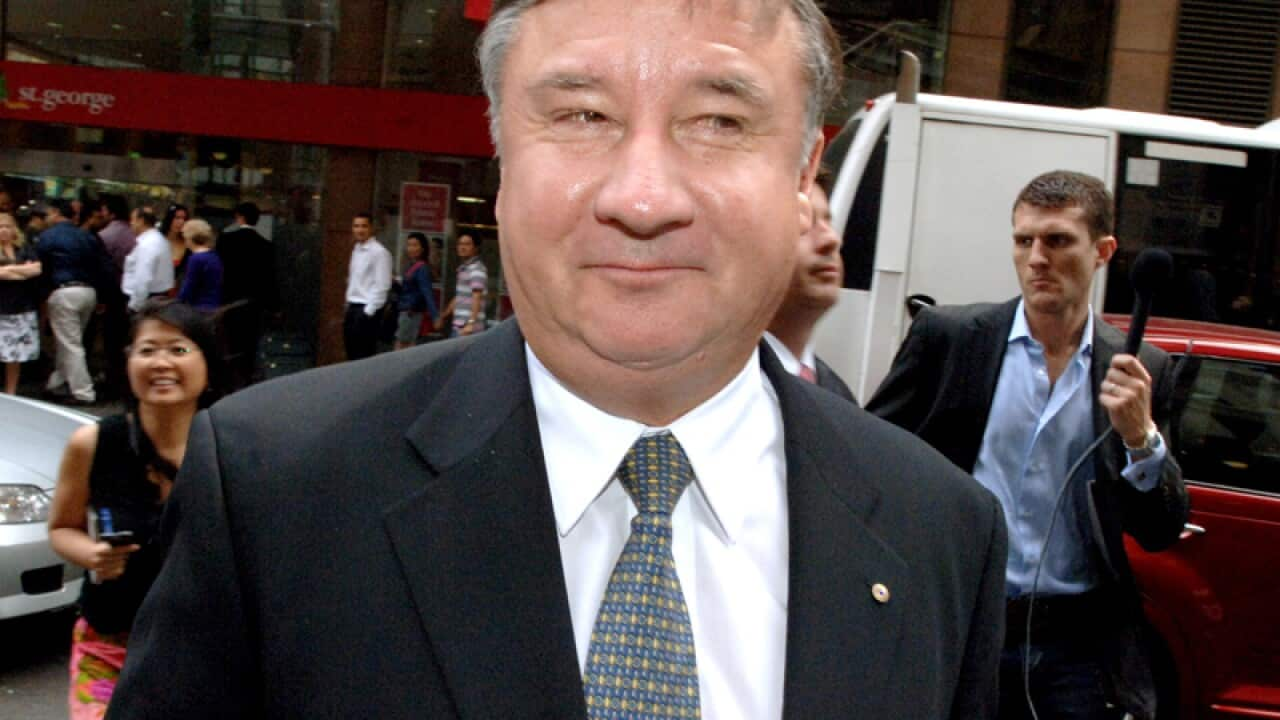Australian wheat exporter AWB's chairman should have blown the whistle on its $US220 million ($A300 million) in sham payments to Saddam Hussein's regime, a trial has heard.
Australian Securities and Investments Commission counsel Norman O'Bryan SC said former chairman Trevor James Flugge was obligated to stand up and tell the company to stop the "evil" practice.
Mr O'Bryan said Mr Flugge should have said: "We must not do this. We must stop. It's wrong. It's evil.
"It's highly dangerous because there is a serious risk that we will get caught."
Mr O'Bryan said Mr Flugge should have said the consequences could be utterly disastrous if the practice was not stopped.
"As chairman of the board of this company, Mr Flugge could have done many things which would have put an effective end to what occurred," Mr O'Bryan said on Monday.
Mr Flugge and AWB's former group general manager of trading, Peter Anthony Geary, are facing a civil trial for allegedly breaching their duties as officers.
The Victorian Supreme Court heard AWB's contracts with the Iraqi Grain Board under the United Nations oil-for-food program were inflated by disguised inland transportation and after-sale service fees.
Mr O'Bryan said unknown to Australia's international competitors, AWB accepted a lower price for its wheat and the secret payments effectively handed currency to an Iraqi government desperately in need of all the international currency it could get.
"In effect AWB became an exporter of two commodities from Australia - wheat and cash."
The UN essentially took control of Iraq's international trade following the country's invasion of Kuwait in 1990, the court heard.
Mr O'Bryan said the international community sought to limit and prevent Hussein's "monstrous activities" both in respect of his near neighbours and a much wider group of neighbouring countries.
"The UN sought to tighten its grip around Saddam Hussein by denying to him the use of international currency which they knew that he would use to buy things like weaponry to threaten and attack his neighbours."
A coalition of countries, including Australia, invaded Iraq in 2003 and Mr O'Bryan said the Americans in particular were deeply suspicious of AWB's contracts.
"It did not take them long to work out that those contracts had been improperly inflated to insert the inland transportation fees and the after-sales service fees," he said.
The court heard AWB made payments for purported Iraqi Grain Board fees totalling more than $US220 million, which AWB then recovered from a UN escrow account.
"The completely inexplicable inflation of the so-called inland transportation fees ... would have made it as plain as a pikestaff had nothing to do with the cost of inland transport," Mr O'Bryan said.
He said AWB sought no explanation or justification for what was actually happening to the money it paid to an intermediary company.
"It simply closed its eyes and paid," Mr O'Bryan said.
In a statement released by his lawyers, Mr Flugge said he and his family had lived with untested allegations, rumours and innuendo since the ASIC action started in 2007.
"For the sake of my family I trust that these will finally be put to rest," he said. "I fervently believe now, as I did from day one, that I have done nothing wrong."
ASIC alleges Mr Geary, the fourth highest paid staff member at AWB, personally authorised six payments of the purported fees totalling almost 20 million euros to the intermediary Alia between March 2002 and February 2003.
"These did not happen while he was asleep behind the wheel ignorant about what was going on," Mr O'Bryan said.
ASIC's case against Mr Geary also covers his alleged knowledge of AWB inflating contract prices to recover more than $US7 million ($A29.56 million), picking up a $US500,000 ($A6 82,000) commission, for a debt IGB owed to another company Tigris Petroleum Corporation Ltd.
"This is simply a straight-out fraud being practised upon the UN and the UN escrow account - nothing to do with inland transport fees, simply a designed fraud to inflate the price of wheat," Mr O'Bryan said.
Share

